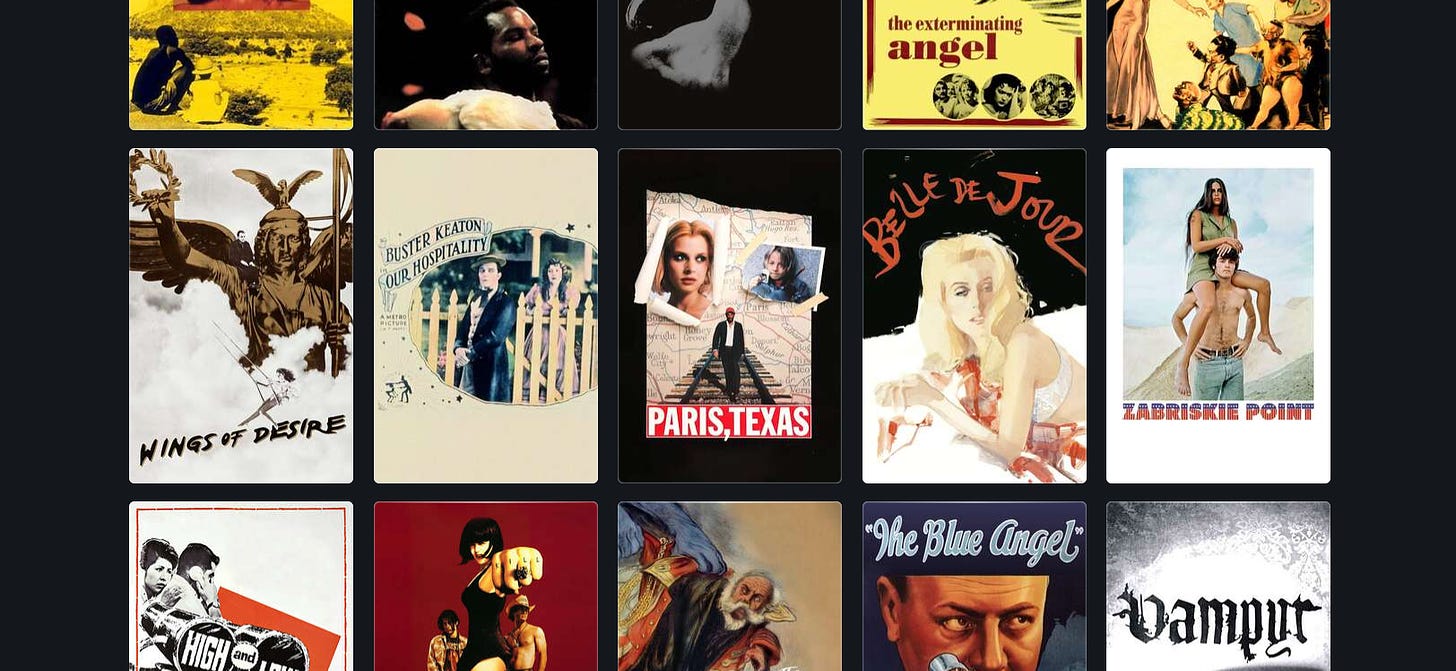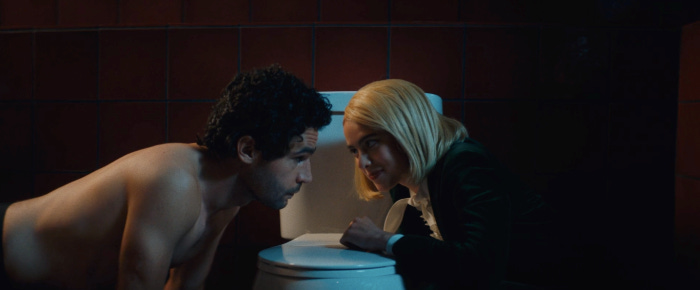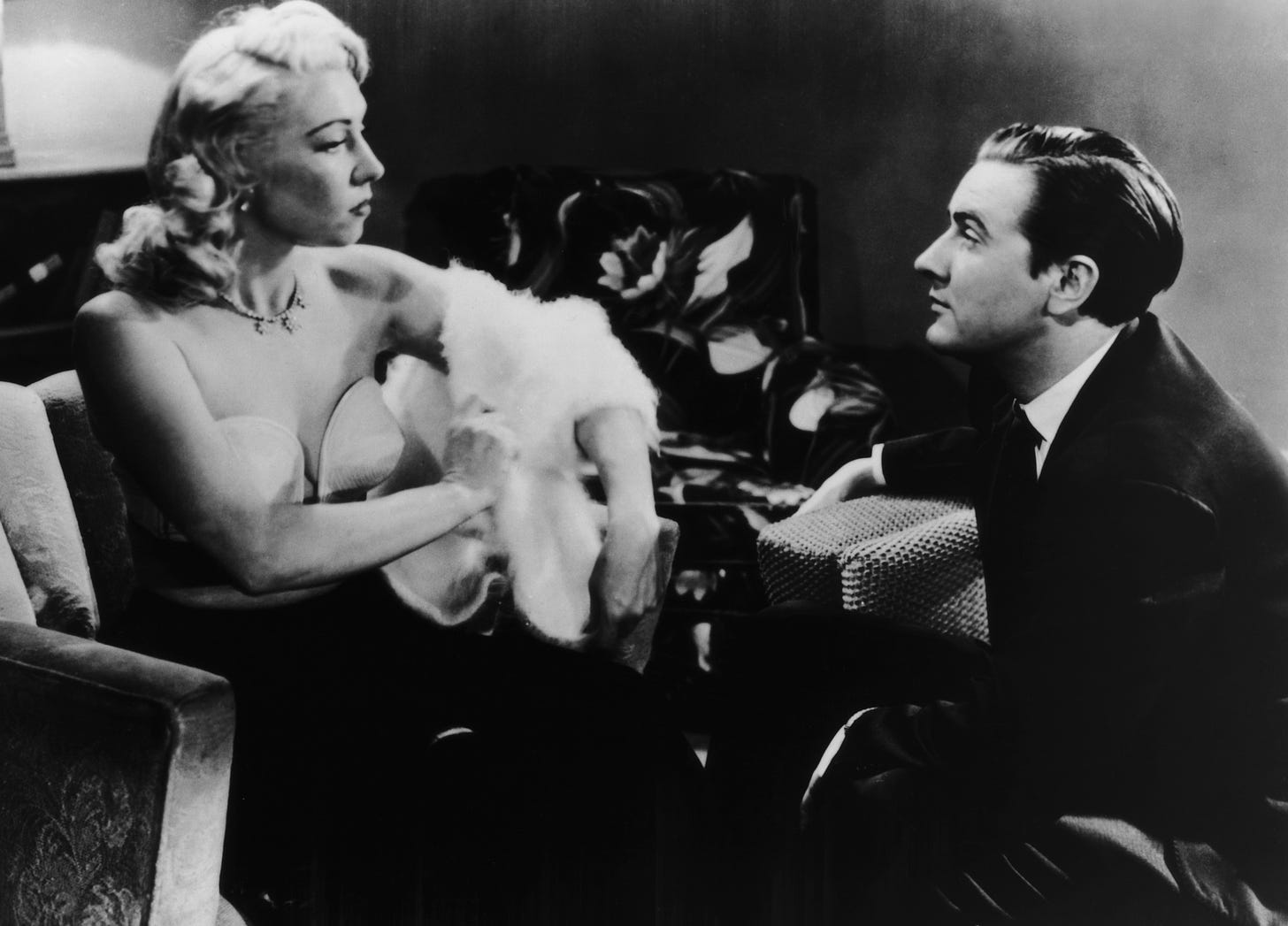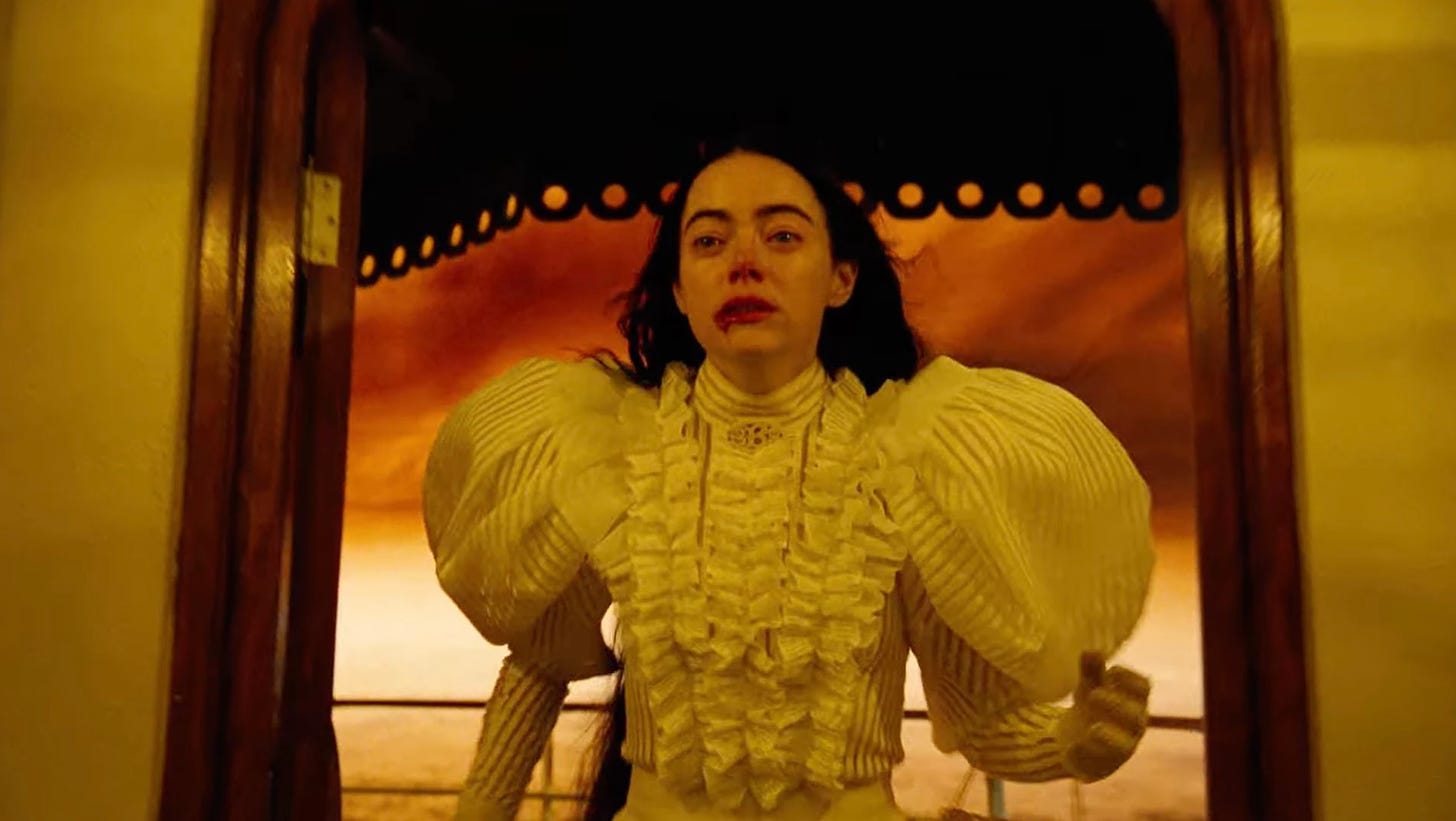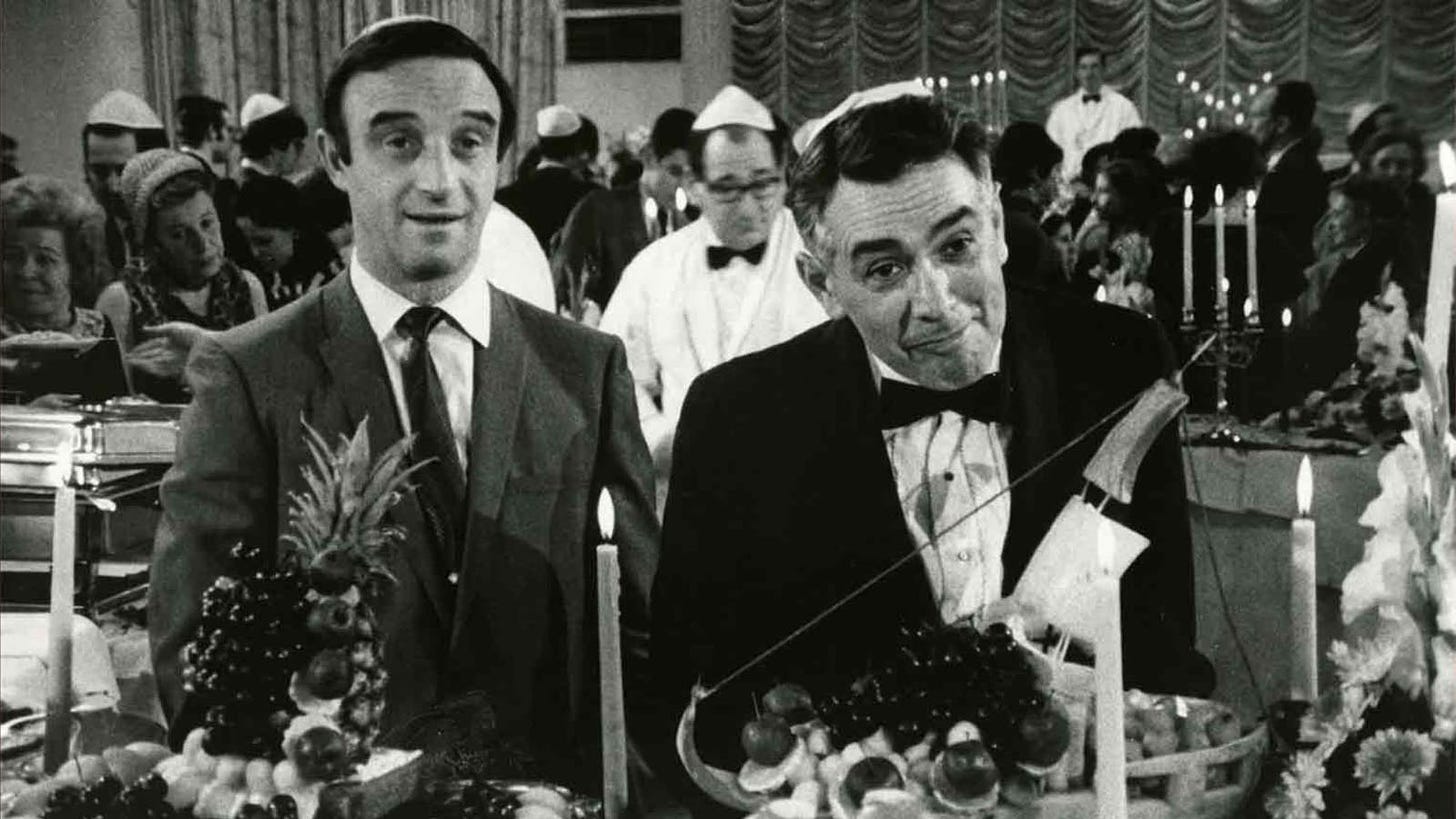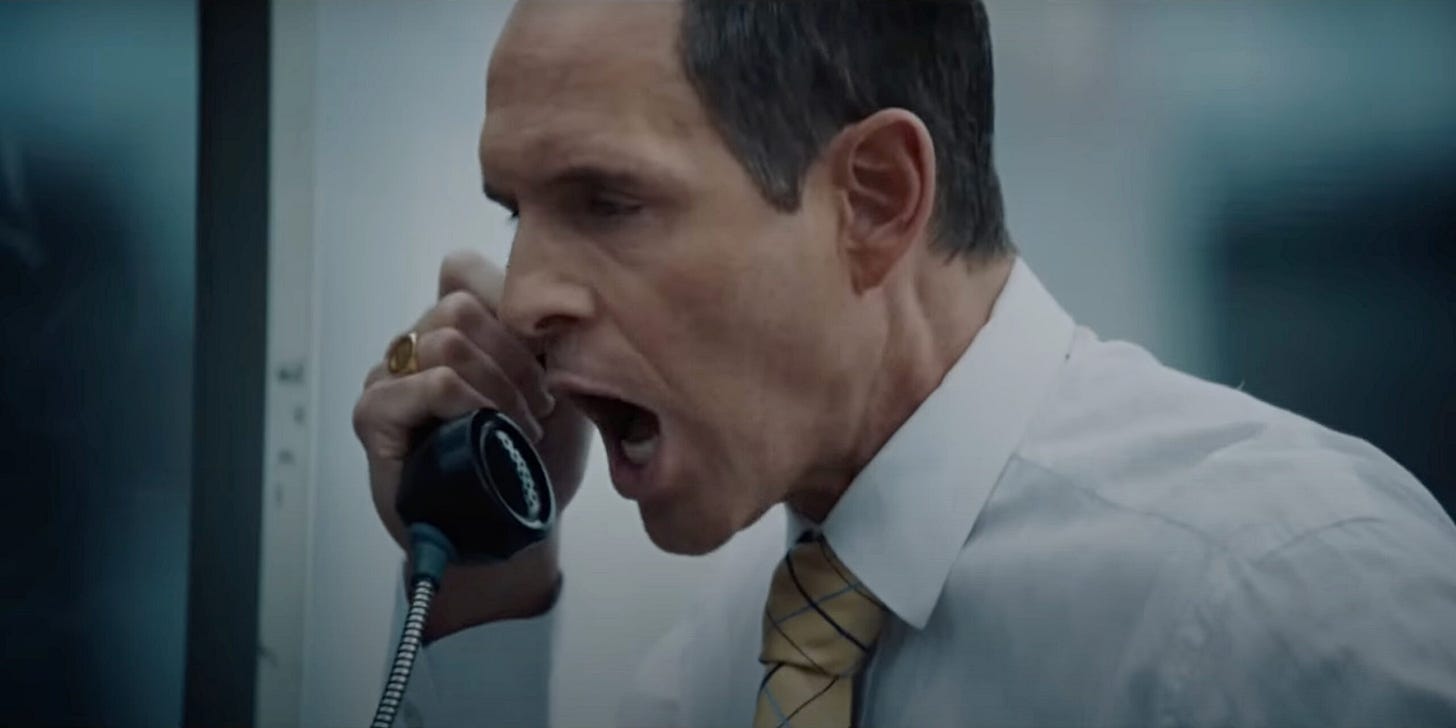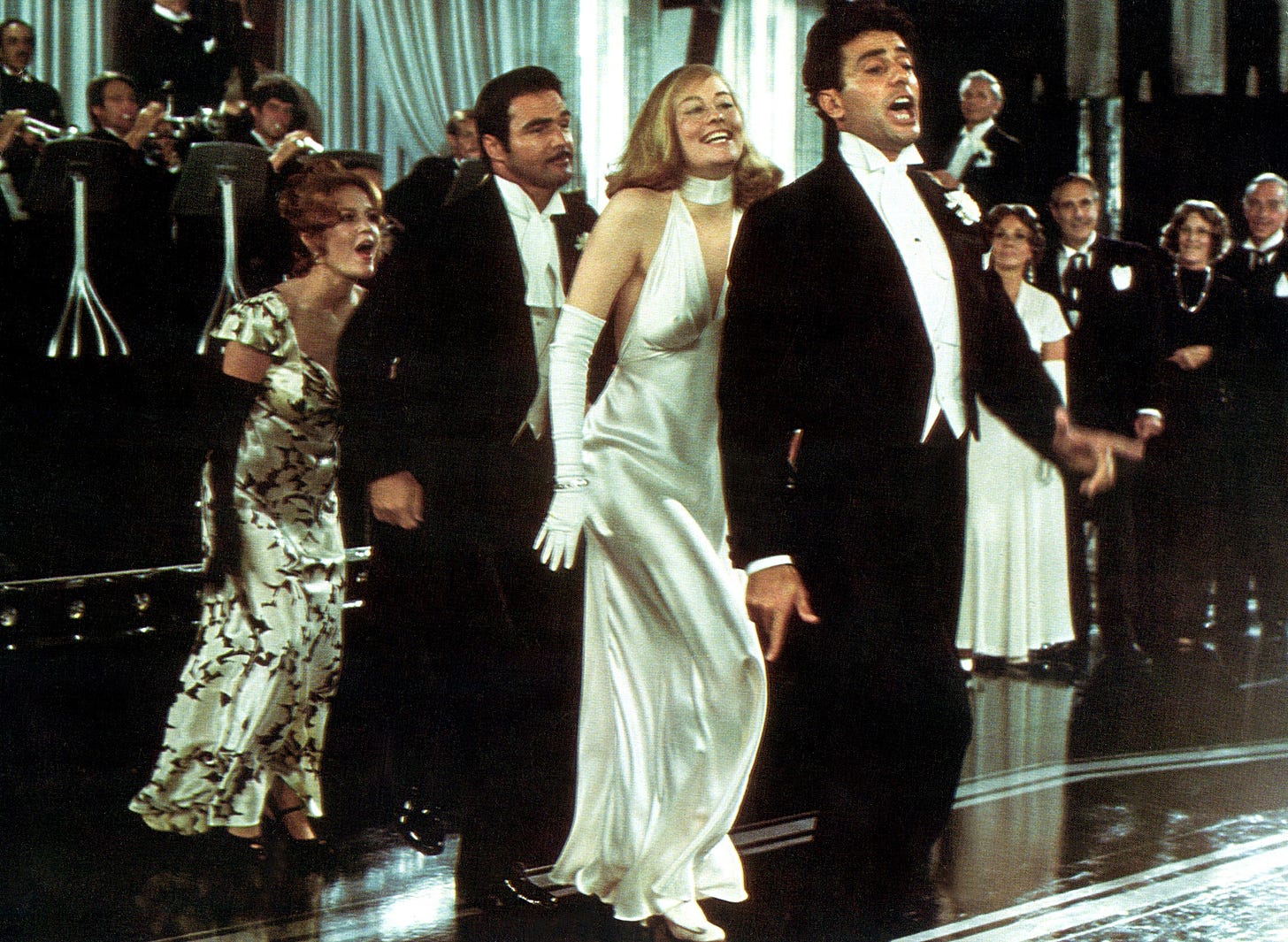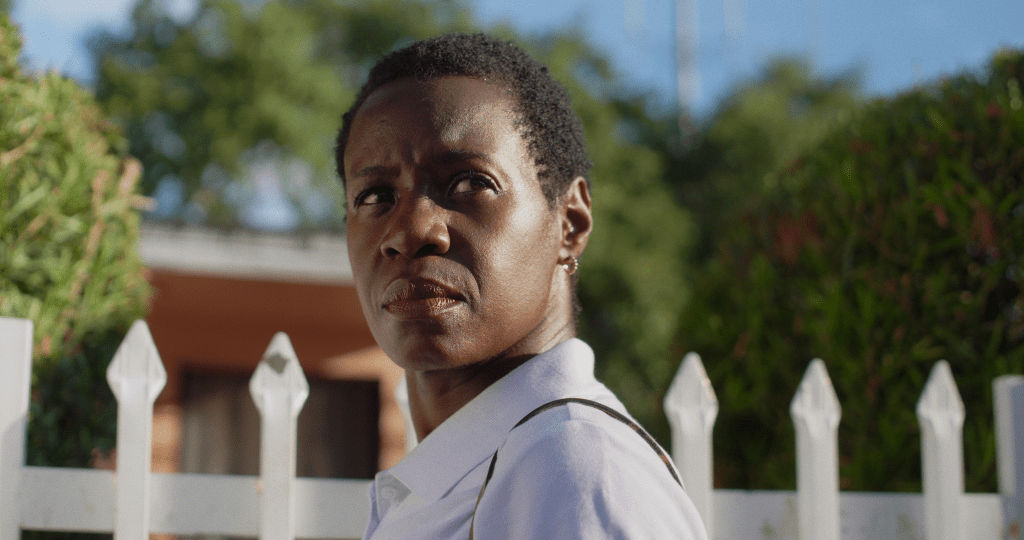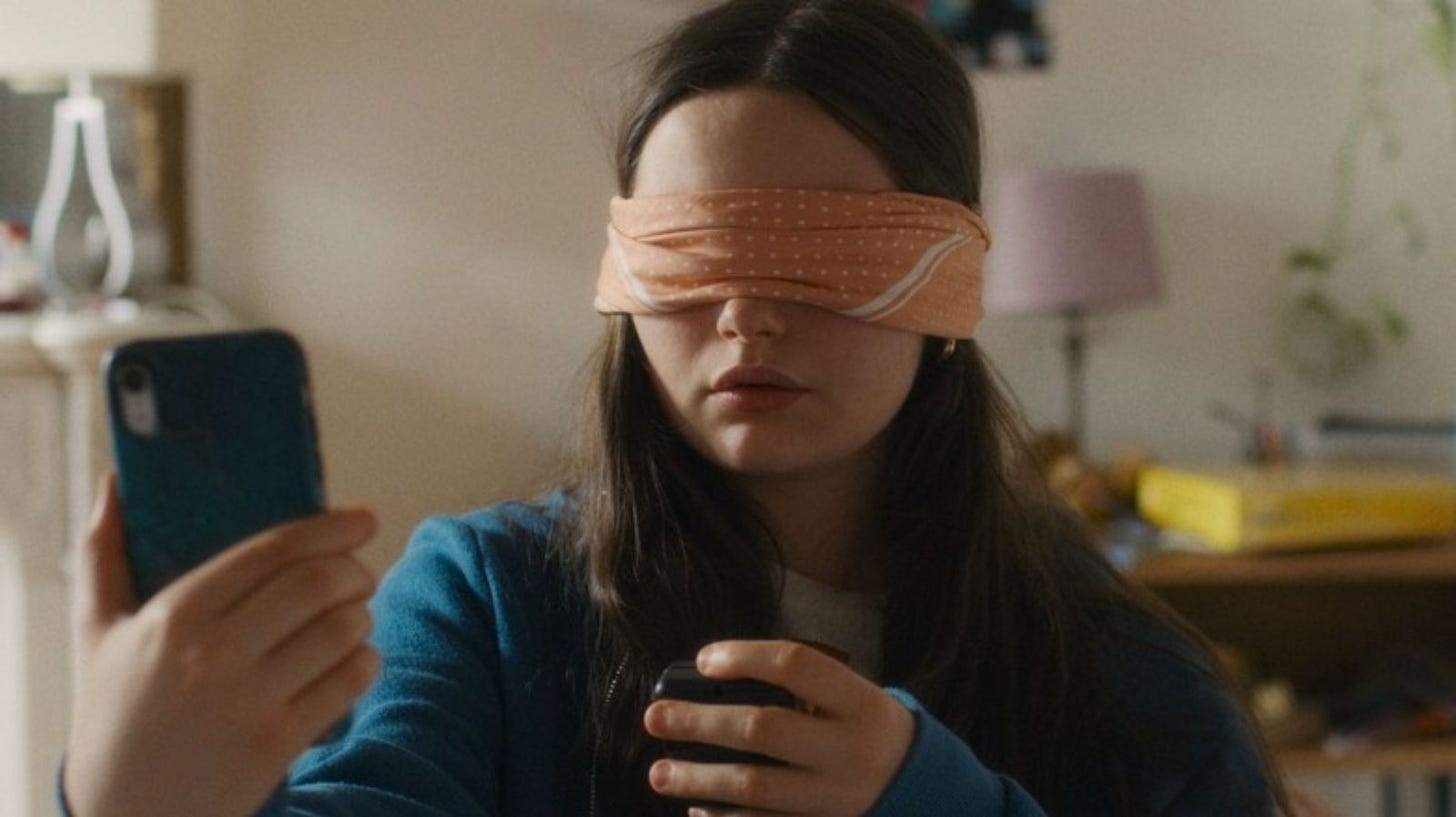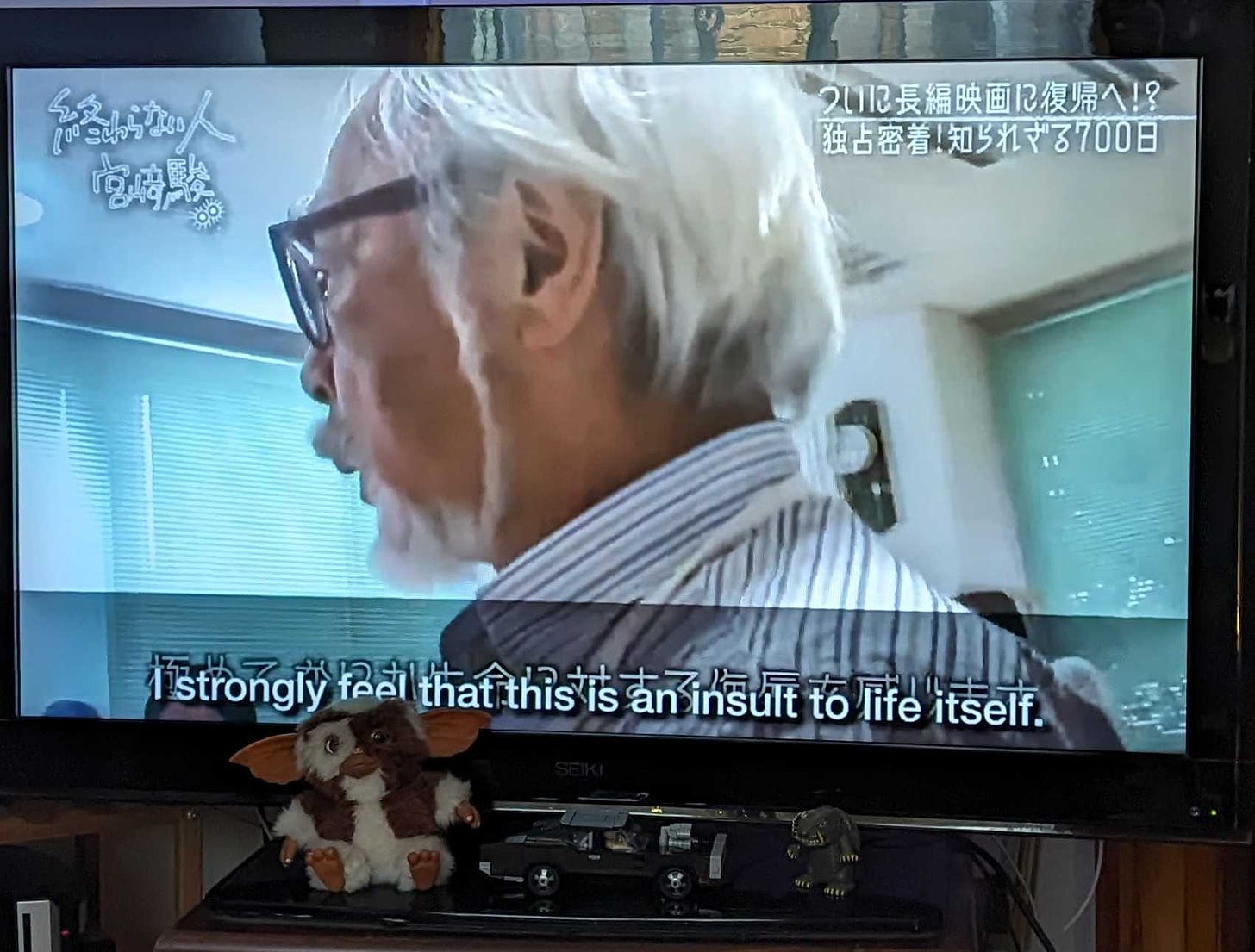#17 Are You Still Watching? Our Most Memorable 2023 Film Experiences 🎥
Featuring festival faves, movie marathons, the 30th anniversary of one of North America's last video rental shops, and more
In The Mood Magazine’s 2023 Wrap-Up
For the last day of the year, we asked our contributors to look back on their favourite film moments of the year, and there were projector mishaps, a genre-bending pandemic film, a celebration of a beloved Toronto film institution, and falling asleep in the theatre. But while we look back, I also want to look forward, to what I hope to watch in 2024.
In 2023, I watched over 60 blind spot films from a list I made in January (I’ll admit the list changed slightly over the year, as my interests and resolve shifted). There were classics from masters (Ugetsu, Notorious, Faust), titles from an ‘80s watchlist my boyfriend made me (Breathless, River’s Edge), some films I was hoping to write about (the Joan of Arc cannon), and ones I just wanted to see, but never got around to (Daisy Kenyon, Sex is Comedy).
I found the exercise illuminating, not only because I watched some incredible films, more than a normal year, but because I learned that I could trust the wisdom of the person back in January 2023, setting the best intentions for myself. The way people talk about New Year’s resolutions, it’s like they’ve been abandoned before they’ve been attempted, like the desire to improve is always weaker than the fear that you never will. It’s in our nature to be at war with ourselves sometimes, to feel estranged from ourselves. I only watched a little more than two-thirds of the list, I didn't take into consideration the marathon of films watched during TIFF, or how I only want to watch horror in October, or how distracting my own life tends to be.
So, with that in mind, I’ve made another watchlist, because I am a Virgo and I love to do that. I am trying to strike a balance between focus and freedom, self-improvement and self-acceptance, benefitting from the wisdom of others and following my instincts. It has some from the 2023 watchlist I didn’t get to (Touki Bouki, A Nos Amours) and more classics that I’m a little embarrassed to have not seen (My Own Private Idaho, Freaks). But there are fewer films, partly because I want more freedom to add some as I go (the previously mentioned following of my instincts) and because I also plan on being out in the world more and consequently seeing fewer films.
Read my 2024 watchlist here—happy new year!
Gabrielle Marceau
Editor-in-Chief, In The Mood Magazine
…and now, our beloved contributors list their favourite film moments of 2023.
Jenna Jaco: “I saw Sanctuary and loved it, but the projector(?) broke(?) 5 minutes from the end of the movie, right at the start of the climactic elevator conversation. We sat in the dark for an hour while the theater tried to fix it. Given the content of the movie, this felt oddly appropriate. To find out how it ended, my boyfriend went to see another movie whose ending aligned with the near-ending of Sanctuary, snuck into Sanctuary after the other movie let out, and relayed the juicy deets to me.”
Quinn Henderson: “I don’t like to do any year-end recaps until the year is truly over because you never know what will slip in under the wire. Case in point: TIFF’s Lubitsch Touch series they ran this December. Ernst Lubitsch has long been my favourite director ever since I picked up the Trouble in Paradise Criterion from a video store in grade 10. He was probably the first filmmaker who felt like one of my guys—as if I had staked a claim on being a fan of his before anyone else. I had the privilege of seeing both Heaven Can Wait and Cluny Brown, two top-tier masterpieces in a career full of them, projected on near-pristine 35mm with an audience. I had previously only experienced these films the way most people experience films these days, alone in a living room. Seeing them in their proper context, with a laughing, swooning (well, at least I was swooning) audience simply re-affirmed what I already knew: Nobody does it like Lubitsch.”
Will Sloan: “We paired Ed Wood’s Glen or Glenda (1953) with Kenneth Anger’s Fireworks (1947) and watched as their ecstasies danced.”
Dia VanGunten: “This idea harkens back to a time when movies were “cinema”—an experiential event that is rarer since the VCR and rarer still in this post-2020 world where I binge-watch in my hidey-hole, with doggos at my feet and my phone in my hand. It doesn’t stick to the ribs like other viewing experiences: watching A Ghost Story while on a plane to Greece or coming out of Batman with three hickeys. I saw Kids on a rainy night at an Ann Arbor Art Theater. Basquiat was my first showing at the old Dobie: a spontaneous escape from the August heat in Austin, Texas. Carly and I pulled over in San An during a relentless downpour and bought tickets to The Water Boy which struck us as funny.
I’m writing this on Christmas Eve so I’m thinking of the Christmas Day Marathon of 1991. I swore I’d never spend another Christmas in a movie theater. I endured it because I didn’t want Dad to be “sad.” He was, of course. That was the saddest part, knowing that there was no way out of that and understanding, even then, that there’d come a day when I’d kill to spend another Christmas with him. We went for Chinese after. He wanted Peking Duck but it has to be ordered days in advance and no one plans to spend Christmas away from home. Or maybe they do.
It’s been a rough holiday, after a death in the family, so I planned to lean into the horror and catch a showing of Poor Things at the Broad Theater in New Orleans. The last ticket was sold to the patron in front of us. I let out a piteous gasp because I expected an empty theater and I was already chowing down on a bucket of buttery popcorn. We played pinball instead and perused the community bookshelf—a “take a penny, leave a penny” situation but for books. I scored with an encyclopedia on political revolution and an oversized Anarchy Anthology.
I’m still going to see Poor Things which is bringing serious Frankenstein’s Bride vibes. The trailer has me salivating with its horror elements, magical realism hijinks, and outrageous costumery. No one does this better than THE GREEK. Yorgos Lanthimos has been my favourite director since his early films. If you haven’t seen the work he did before coming stateside, pre-Lobster, you’re in for an experience, even, or perhaps especially, if viewed from the “safety of home.””
Mark Hanson: “This year marked the 30th anniversary of Bay Street Video in Toronto, one of the last remaining video rental and sales shops in North America (and maybe the world). It’s a place that I’ve been lucky enough to work at for the last decade plus, first as a sales clerk and now as the head product manager. The outpouring of support from the community as we reached this pretty incredible milestone has been heartwarming to say the least, and truly speaks to the importance of maintaining independent arts spaces within the corporately-run hellscape that is our modern world. Thanks to all the wonderful staff and customers who continue to give this place so much life. Who knows what the next 30 years will bring but I’m excited to keep fighting the good fight.”
Lucy Talbot Allen: “In late September, about a month after I moved from Los Angeles to New York for a master’s program in moving image archiving, a torrential rain pummelled the city. My girlfriend’s and my pre-war apartment building couldn’t stand the deluge, and a leak popped through one corner of our bedroom. I ended up getting about two hours of sleep on the eve of my birthday, but I was determined to have a pleasant night out despite it all. I ended up going to Quad Cinema in the Village to see Michael Roemer’s The Plot Against Harry, a 1989 dramedy about a Jewish gangster trying to make a relatively honest living after a prison stint. First premiering in 1971, it didn’t get a wide release until 1989. The Film Desk’s new 4K restoration brought it back to art houses across the country. I was drifting into sleep in the theater as Harry (Martin Priest) catered Bar Mitzvahs and weddings, lulled by Hava Nagilas. I walked back to the Subway giddy from lack of sleep, but thrilled to be reminded of the magic of film restoration, something I might be playing a part in in the years to come.”
Miles Forrester: “Funniest thing this year was in Blackberry, Glenn Howerton shouting, “I’m from Waterloo, where the vampires hang out.” This is true. I’m from Belleville, Ontario, where the swamp monsters rumble. Southern Ontario’s full of monsters. Frankensteins prowl PEC, there are werewolves in London. Glenn, you don’t know the half of it.”
Alex Mooney: “Waist-deep in finals this past spring, I chose to shirk my responsibilities and head over to Bloor Street’s Paradise Theatre for an early-evening showing of At Long Last Love, one of the many critical (and obviously commercial) strike-outs Peter Bogdanovich had after Paper Moon. I’d heard nothing but mixed things, even from its defenders, but I had one of the most inexplicable, trance-like encounters with a motion picture I’ve ever had occasion to enjoy.
Opening on the lovelorn crooning of a self-pitying Madeline Kahn, who achieves a pathos that in no way undermines the side-splitting humour in her routine, was a good way to hook me in, and the film just kept finding new ways to delight me with every new character, every new (then-unbeknownst-to-me) Cole Porter song, and every new workshopped, calculated image nonetheless bursting with excitement and invention, an exuberance that contrasts and transcends the film’s rigid pastiche elements as much as it stems directly from them. Ostensibly an homage to the Lubitsch-Chevalier musical sex-comedies of the early sound era, the film follows four socialites in wildly varying states of financial stability during the Great Depression, played by Kahn, Burt Reynolds, Duilio Del Prete, and Bogdanovich’s muse-slash-object-of-obsession Cybill Shepherd, as they swap couplings relentlessly and confusedly to the chagrin of Reynolds’ servants (Eileen Brennan and John Hillerman), who have their own raunchy courtship going on the side.
It’s a jukebox musical filmed with all the passion and visual élan of the Golden Age, with a healthy dose of pre-Code sexuality to boot. It’s also filmed entirely with live singing, which seems to be the main point of contention concerning its sonic success or lack thereof. None of the actors are able to “properly” hold a tune, barring the formally trained Shepherd (whose powerhouse rendition of “Let’s Misbehave” is still regularly listened to by Me: maybe the only person to ever download the album online), stumbling upon atonalities and muscling gracefully through them—because, of course, most of the numbers are shot in elastic, swoon-worthy long takes as well.
While I have since come to recognize that “proper” vocals do make all the difference to a movie musical, I’ve long maintained that the shaky, honest timbre of an actor’s natural singing voice can carry an emotional weight that could not be achieved otherwise, and At Long Last Love is anything but a traditional musical. Bogdanovich—in more ways than one the anti-Baz-Luhrmann—uses the universality and emotional legibility of pop music, and the broad emotional strokes that form a playfully truthful canvas in Porter’s songs, as the romantic foundation from which he can fill in his characters with texture and nuance, with all the foibles and longings that make his characters so desperately, goofily, and painfully human. Reader, I was practically levitating.”
Steph WK: “Had some funny/strange film moments this year (Drunken Cinema’s screening of The Faulty featuring Josh Hartnett’s iconic haircut, being grossed out by the zombie camel scenes in Naga), but the one film that stands out is Mountains by writer/director Monica Sorelle, a moving, deeply felt portrayal of gentrification in Little Haiti, Miami imbued with humour, empathy, and complicated family dynamics. Sorelle was in attendance at the TIFF screening, as well as some of the cast, and it felt particularly special to access a story about Miami and displacement in Toronto, a city also experiencing its own version of this process. It’s a film I’ll be thinking about for a long time.”
Stella Tago: “I could highlight any number of the amazing screenings and events put on by Bleeding Edge this year, but their May screening of Bertrand Bonello’s Coma particularly rocked me. Despite my dread about what the next decade of “lockdown-era media” would look like, Coma managed to let the COVID-shaped elephant in the room lie, and bring us all into a prolonged state of surreal unsettling limbo that felt transformative rather than ham-fisted. I’m not unconvinced that the movie didn’t open up some kind of portal that we're all still living in now, or perhaps it just shone light into a portal that we never left...”
Sennah Yee: “I threw a Sennah Film Festival for my birthday: an all-day-and-night movie marathon of faves that people could drop into whenever and for however long they pleased. Curating it was a pleasant puzzle—I went with crowd-pleasers that can be background noise, but still easy on the eyes. My husband edited all the movies together into one big file, with surprise behind-the-scenes/trailer segments in between as mini breaks.
The final program: Call Me By Your Name, My Neighbor Totoro, Elvis '68 Comeback Special, Gremlins 2: The New Batch, Charlie's Angels, Point Break, and The Fast and the Furious—followed by watching the Formula 1 Japan Grand Prix live until 3:00 a.m. to cap it all off!”
Deadline extended for Issue 9 submissions
We’ve extended our submission deadline to January 2nd for Issue 9: HOMETOWN. Check out our new guidelines here:
Wondering what to watch?
Choose a mood on our Film Recommendation Generator and get a curated pick from writers, filmmakers, poets, and artists.
Donate
If you’d like to donate to our mag you can do so through our PayPal! We’re volunteer-run, and donations go directly to the mag and contributor honorariums.




